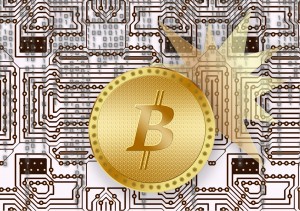In a world of central bank jokers it will take more than gold to restore trust in the system
 Bullion.Directory precious metals analysis 20 November, 2014
Bullion.Directory precious metals analysis 20 November, 2014
By Terry Kinder
Investor
Some have proposed a return to the gold standard or the inclusion of gold in some basket that might include other commodities or fiat currencies. It seems to me that what is not addressed in talk about a gold standard or some other replacement for the current regime is the matter of trust.
The current gate keepers (more like prison guards) of our current system, the banks, are no longer trusted by a large enough portion of the population that it seems unlikely the results of some new order would be much better than the old one. If central banks were Jack Nicholson’s version of the Joker in a Batman movie they would be shouting, “Who do you trust?” Like the crowds that cheered the Joker, the people will find they should no more trust the banks than the citizens of Gotham should have trusted the grinning madman in the purple Zoot Suit.
Some are hopeful that if the monetary system, led by the U.S. Dollar, collapses that a gold standard would rise out of the ashes and allow trust and integrity of the system to be restored. The problem is, the people who will implement any new system are likely the same ones mismanaging and gaming the current one.
It is naive and unrealistic to believe that merely putting some form of gold standard in place will ensure a new “golden age” of prosperity and economic freedom. The central problem of the current system is that it is centralized. There is a very small circle of “trust” (or perhaps lies) and you’re not in it.
You probably won’t be part of that circle, ever. Those within the small circle like things just the way they are. So, whether the system is backed with gold, IOU’s, or fiat paper with pictures of dead presidents doesn’t matter because the system has too tight a grip on all of the levers of power for the average person to effectively oppose it.

Who do you trust? Central bankers, governments and other centralized institutions? A new gold standard run by the same jokers who mismanage and take advantage of the current one will likely be no better. What is needed is a system that disintermediates the current power structure and gives gold a chance to act to restrain monetary policy and government spending. Bitcoin, UltraCoin and Ethereum could all potentially help restore the balance between the individual and centralized institutions.
So, if a gold standard won’t wrest power from the central bank jokers, what will?
The Bitcoin Protocol or something like it, plus either a non-trust based layer built on top of it like UltraCoin, or perhaps Ethereum, which hopes to offer a platform and programming language which will provide a base for developers to build non-trust based applications that today are just dreams.
So, what is all of this business about non-trust?
Well, something like Reggie Middleton’s UltraCoin enables transactions to be completed without one party having to trust the other. For instance, a seller in the United States could offer to sell widgets to a buyer in France. They could work out all of the terms of the agreement – price, specifications, delivery date, etc. Instead of relying on a letter of credit or wire transfer, this agreement can be conducted through a digital wallet and without counterparty risk. Here’s the UltraCoin elevator pitch.
UltraCoin is programmable money that allows counterparty risk free transactions.
Create loans without banks, trades without brokers and contracts without lawyers – all available through your own personal digital wallet.
So, instead of relying on trust, or hiring a third party to mediate the transaction and mitigate the risk, UltraCoin disintermediates the traditional way of doing things, eliminating the need for banks to draw up letters of credit, lawyers to create contracts, courts to enforce the terms of the agreement, etc.
This is a good thing because trust and trustworthiness is something that is in short supply. Institutions such as governments, banks, lawyers, etc. are often not trusted to the degree that they were in the past. UltraCoin, built on top of the Bitcoin Protocol, allows people to transact using a medium of exchange (Bitcoin) that was created outside of the banking system. In addition, two parties can come to an agreement, outline that agreement in a digital contract stored on the Blockchain, and resolve any issues all outside the traditional system of law and courts.
Ethereum is working toward the same end as UltraCoin, only they are building a platform and programming language that will stand on its own rather than needing to run on top of Bitcoin. Their thought is that the Bitcoin Protocol wasn’t necessarily built to efficiently handle things such as smart contracts, smart property, and other non-trust applications that are now being dreamed up, so it’s better to create a new platform to build them on.
Ethereum sets out their vision –
What:
Ethereum is a platform and a programming language that makes it possible for any developer to build and publish next-generation distributed applications.
Ether, Ethereum’s cryptofuel, powers the applications on the decentralized network.
Ethereum can be used to codify, decentralize, secure and trade just about anything: voting, domain names, financial exchanges, crowdfunding, company governance, contracts and agreements of most kind, intellectual property, and even smart property thanks to hardware integration.
Ethereum borrows the concept of decentralized consensus that makes bitcoin so resilient, yet makes it trivial to build on its foundation. To find out more about how Ethereum works, consult the white and yellow papers.
Why:
Most of the services you use today have something in common: they are centralized. For example, when when you deposit money at your bank, you trust them to be honest, be secure and be independently audited. The same is true when you post pictures on Facebook, or an important document on Dropbox. History has proven time and time again that this model is flawed, but necessary, as ‘trustless’ operations have been so far both unprofitable and too complex to implement.
Enter Ethereum.
Applications built on Ethereum do not require their users to trust the developers with their personal information or funds. Ethereum not only addresses the issues described above, it also opens the door to whole new kinds of applications that have never been seen before.
There is much more – but the length of this article simply doesn’t allow time to discuss. For more information please go to UltraCoin and Ethereum and spend some time learning more.
Reggie Middleton’s UltraCoin is already allowing people to, “Create loans without banks, trades without brokers and contracts without lawyers – all available through your own personal digital wallet.” You can go to the site now and download the wallet and use it. It is also worth your time to explore the Ethereum site as well. Take some time and read their blog. They have some very bright people working on the project. If they can execute their vision properly, Ethereum could prove to be revolutionary.
All of which leads us back to where we began, with gold.
It simply isn’t enough to expect that somehow gold will flourish under the same corrupt powers, central bank jokers, and others who have so badly mismanaged and taken advantage of the current system.
For gold to have any chance at becoming more central to the monetary system and acting to reign in monetary excesses, the reigns of power will have to be taken away from those who hold them now. Short of total revolution or total collapse, the most viable option is the disintermediation of the current power structure offered by the Bitcoin Protocol with UltraCoin running on top of it or the platform and programming language envisioned by Ethereum.
Only by breaking the monopoly of power held by central banks and others is there any hope to reboot the system and move it away from virtually unrestricted levels of currency creation, debt, manipulation and corruption.
In the end, even the Bitcoin Protocol, UltraCoin and Ethereum may not be enough to give gold a restored role within the monetary system.
However, without them and their potential to re-balance power between individuals and centralized institutions, there is little hope that gold can return to its role of restraining the unlimited growth of fiat currency and government overreach.
Bullion.Directory or anyone involved with Bullion.Directory will not accept any liability for loss or damage as a result of reliance on the information including data, quotes, charts and buy/sell signals contained within this website. Please be fully informed regarding the risks and costs associated with trading in precious metals. Bullion.Directory advises you to always consult with a qualified and registered specialist advisor before investing in precious metals.












 Material provided on the Bullion.Directory website is strictly for informational purposes only. The content is developed from sources believed to be providing accurate information. No information on this website is intended as investment, tax or legal advice and must not be relied upon as such. Please consult legal or tax professionals for specific information regarding your individual situation. Precious metals carry risk and investors requiring advice should always consult a properly qualified advisor. Bullion.Directory, it's staff or affiliates do not accept any liability for loss, damages, or loss of profit resulting from readers investment decisions.
Material provided on the Bullion.Directory website is strictly for informational purposes only. The content is developed from sources believed to be providing accurate information. No information on this website is intended as investment, tax or legal advice and must not be relied upon as such. Please consult legal or tax professionals for specific information regarding your individual situation. Precious metals carry risk and investors requiring advice should always consult a properly qualified advisor. Bullion.Directory, it's staff or affiliates do not accept any liability for loss, damages, or loss of profit resulting from readers investment decisions.

This was from an interview from fund manager Hugh Hendry, who became popular earning 31% during 2008:
“With regard to language the notion of ‘bullish’ and ‘bearish’, I think, does an injustice to the complexity of the arguments that are necessary to construct a global macro hedge fund. I think if I had my time again, I would have been saying that we’re actually, perhaps, guilty of the misconstruing of a bull market in equities, for what is actually the ongoing degradation in the soundness of the fiat monetary system. I think that’s what I was trying to say.”
I think fiat alternatives will be popular in the near future. Although, I really do wonder about bitcoin and alike. I wonder if it would make a better method of commerce then an actual currency.